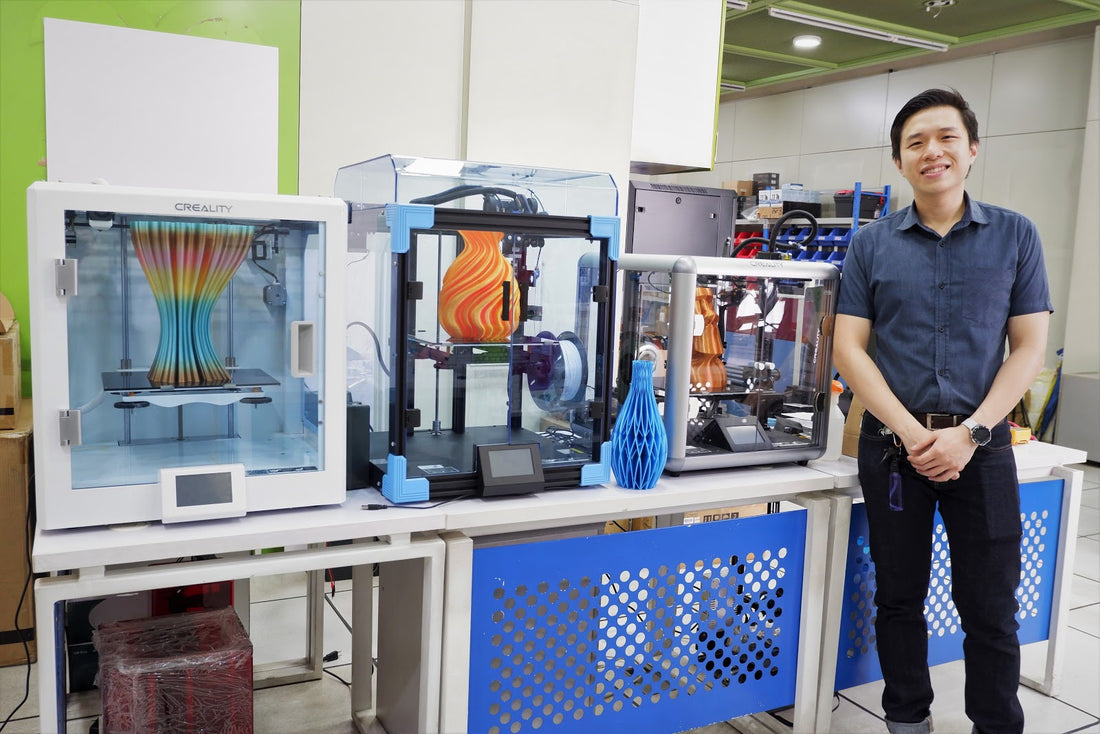
THEY SAY it takes a village to raise a child, and for Makerlab Electronics, it takes a supportive community of parents and creators to turn Generation Alpha into scientists.
"The parents' support and engagement are very vital. It is important that they expose kids to science and technology at an early age in order to develop their interest," said Mike Jassen Sy, founder of Makerlab Electronics, a Filipino company that makes 3D printers, electronics, and robotics accessible to creators pursuing inventions and projects.
The term Generation Alpha, coined by McCrindle Research, refers to those born from 2010 to 2024 or those aged 11 and below who grew up with touch screens as part of their education and entertainment.
"During our time around the 1990s, there were no cellphones and computers so we just learned how to use them eventually. But now, kids as young as one or two years old are already touching iPads and it is second nature for them to use cellphones and computers," Sy said.
Their millennial parents, born between 1980 and 1994, are also naturally supportive and willing to invest in them.
"We once had a customer who bought a 3D printer for his child, but the child struggled with operating the equipment so the father personally went to our shop and studied it so he could teach him," Sy said.
Aside from affordable 3D printers, Makerlab's products include low-priced microcontrollers, breakout boards, electrical enclosures, liquid-crystal displays, Raspberry Pi computers, prototyping, relays, sensors, soldering, and wireless technology.
"Since our products are open source, there are instructions all over the internet on how to use them. The advantage is if you bought a product and you do not know how to operate it, the internet community will help you, such as the 3D printer group on Facebook," Sy told FrontpagePH.com
"If you are not sure how to operate something, a whole community in the Philippines will guide you until you make it work. Filipinos are naturally helpful -- you will never run out of support."
Electronic kits at kid-friendly prices
At present, Makerlab's products cater to kids aged 10 and above, but the company will soon offer kits that will spark the interest of children as young as eight years old.
"Based on my experience at school, electronics and robotics are limited to the classroom and you can only experiment if you are part of a group. What we want is to allow students to pursue their ideas and projects at home even by themselves," Sy said.
The COVID-19 pandemic and quarantines ushered in strong demand for kits that teach even second and third graders about the basics of electronics: how to control things, display lights, and LED, among others. Before the pandemic, Makerlab's youngest customers were fifth or sixth graders who use it in STEM (Science, Technology, Engineering, and Mathematics) learning.
Makerlab offers these generic electronics kits at a low cost to make them accessible to children.

For example, the "micro:bit," a pocket-sized microcontroller designed for kids and beginners learning how to program, costs only P999. This lets them turn their ideas into do-it-yourself digital games, interactive projects, and robotics.
Meanwhile, the "Advance Upgraded Starter Kit V3 based on Arduino®" costs only P1,299.75. It includes sensors and other components that will allow project starters, hobbyists, and researchers to learn basic up to advanced microcontroller programming and the basics of radio-frequency identification.
"Makerlab's electronics kits gained popularity because of their affordability. We also created a guide to help kids operate them," Sy continued.
Makerlab's budget 3D printers also allow creators to print their own designs at home. The “Creality Ender-3 3D Printer” which costs only P8,499, is currently offered with free Creality filament.
Making Sci-Tech cool for kids
A challenge for the industry is how to make STEM "cool" in order to attract kids and erase the belief that it is only for older students, scientists and techies.
"It will require community effort to achieve that. We will need cooperation from various organizations: schools, coders, robotics, and electronics," Sy averred.
One possible solution could be to take advantage of social media, since a 2019 survey by LEGO and The Harris Poll revealed that kids nowadays would rather be vloggers or YouTubers instead of astronauts.
"We should utilize vlogging to encourage more people to enter into electronics and robotics," Sy explained further to this writer. "I was inspired to take up Engineering in college because of one anime -- Fullmetal Alchemist -- because his robotic arm is cool. Even Iron Man is an inspiration for people to enter the robotics field."
He considers the growing number of people who are experimenting and posting their learnings on social media to be a positive development for the industry.
Since children of Generation Alpha are digital natives, Sy said they are easier to teach but the downside is their tendency to "copy paste" codes.
"We want to help them understand how to code, how to do it step by step, instead of just copying and pasting," he added.
When Makerlab started five years ago, its clients back then were college students doing their theses. After graduating, they returned, this time as professionals.
Sy said: "Makerlab has been there for them since they were kids, and our aim is to be their go-to place from the start of their journey."
The future of Sci-Tech
Since the internet is now a daily necessity, it is mandatory for the young generation of Filipinos to learn how to lead the revolution known as the Internet of Things (IoT).
"Coding is a necessity because everything we do in our life is governed by codes: how we interact in videos, how we send emails, etc. The IoT revolution is here and everything is SMART (self-monitoring, analysis, and reporting technology),” Sy said.
“The members of the young generation are not just users -- they are the ones who create and they should know how these things work.”
He pointed out that developed countries are in a race to equip their young population with technological skills and the Philippines has some catching up to do.
"If we don't emulate their progress, we will lag behind our Southeast Asian peers," Sy said.
Published in FrontPagePH
July 24, 2021

